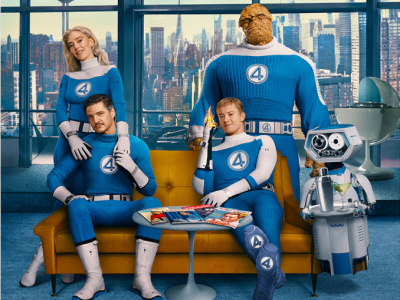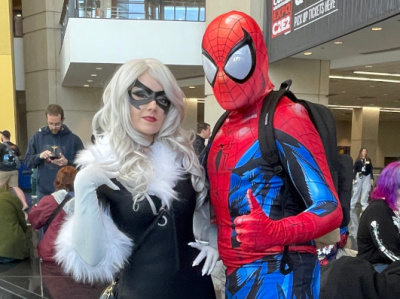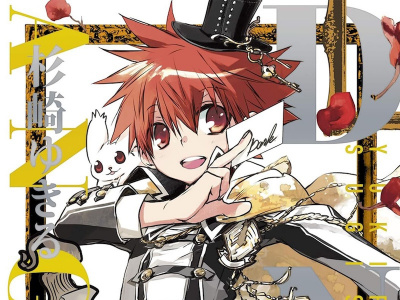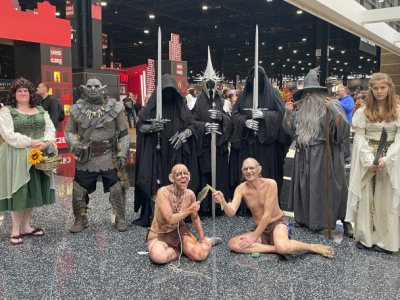ICv2 continues its series of interviews with comic publishers with a talk with Marvel publisher Dan Buckley (who asked VP Sales David Gabriel to join in). In Part 1 (of four, to be published over two days), we talk about the state of the market and the reasons for the success of Civil War in bookstores as well as comic stores. In Part 2 we talk about more of the newer distribution channels for Marvel books, and Marvel's publishing plans to tie into its 2008 movies. In Part 3, we talked about publishing Amazing Spider-Man three times a month, lessons learned from Anita Blake and
How does the market for comics and graphic novels look from the Marvel perspective in 2007 vs. 2006?
Dan Buckley: Believe it or not, it's a better year; we've been growing. We were a little bit intimidated going into 2007 because of Civil War in 2006, but the Initiative and World War Hulk have done a good job of matching, the Dark Tower books have been incredibly successful for us, and the Anita Blake book has worked out fairly well. We're very happy; we think the business is still growing at a pretty good rate.
Do you think that's Marvel, the market or both?
DB: I think we've grown a little bit more than the industry this year, but not substantially more, so I would say both.
Break it down by channel a little. In comic stores, you've mentioned your event comics and some of the author-driven products that have done well. In bookstores, it was kind of surprising to us to see how well the Civil War books did. Those kinds of titles haven't traditionally haven't done as well as those did in that market.
DB: I'm not going to get into numbers, because I can't. Both markets have grown very well. As I think you know, the book market has grown a bit faster than the comic book market for us in the last couple of years.
A lot of that has to do with two dynamics. One dynamic, a big one at that--Marvel was not that involved with the book market for a good decade. David [Gabriel] and his team have been dealing with that issue from classic works going forward for the last three or four years. Civil War--yeah, we're a bit surprised how well it did in the mass market, too. But it does reflect how much PR and mass market press we generated against these events. And as they get out there on the shelf more, I think they cross-sell each other because they're so well branded and merchandised. They take up a lot of shelf space, so you probably get there and see Civil War and say, 'Oh, I'll grab this one, too.'
A lot of it had to do with the fact that we didn't just get one big press run of Civil War; we got the launch press, we got the unmasking of Spider-Man press, we got additional press near the tail end of it, especially when the Cap stuff happened. And also we ended Civil War #7 right around New York Comic Con, which generated a lot more press again. So it wasn't like we got one hit out of it. A lot of people kept on hearing about it, and yeah, it has surprised us, but it's a pleasant surprise.
I'll just add, the reports that I got back from the buyers themselves in the book market, was that the story was so accessible for new readers, or really to any reader, so that if anyone had to explain what the story of Civil War was, they could do it in about two sentences. It was very easy for them to put this in front of stores to sell to as many customers as they could because of the accessibility of the story.
You mentioned several things that made Civil War a special event and allowed it to be successful in multiple channels. Are you trying to apply those lessons to future events (you just announced Secret Invasion for next year)? How will you take those lessons and apply them to future editorial events?
DB: I think the biggest lesson you can learn from it is just trying to come up with a clear, concise communication platform that allows you to explain it in two or three sentences. Civil War, even from the standpoint of pre-launch was, 'Whose side are you on?' And that's a pretty simple challenge statement.
We're not getting into the details of Secret Invasion yet, but we are working very hard with the creators and the editors to make sure that we can distill a simple message that can go out to the mass market. Now, can I guarantee it will be as simple and clean a metaphor as Civil War? Probably not, because I really do think we caught lightning in a bottle with that. As far as the tactical execution and thought process behind Civil War and how we marketed it, I think we also did very good blocking and tackling communication and marketing around it.
We'll try to execute both going in. With World War Hulk, we knew that there was no real world metaphor to that. It was 'Hulk smash,' and our attitude was that it was going to be a Jerry Bruckheimer production, and we're just going to have some popcorn and enjoy ourselves. We knew it couldn't have the type of messaging that Civil War had, because you can't really tie it into a news story.
Would we love to have another Civil War that was easily translatable to the events from the headline news? Yeah. We might be able to get that out of Secret Invasion, but we're still working our way through it. But as far as how early we start communicating programs, how we do the pre-buzz, how we do the buzz when we launch the book, and how we follow up the buzz again when we launch the collection, there's a lot of things we've learned about the timing of communication. From a standpoint of the story and metaphor for Civil War, if we catch lightning in a bottle like that again, we'll be super happy. And hopefully we do. We're going to challenge everyone to do that, but that was a very special thing that happened there.







